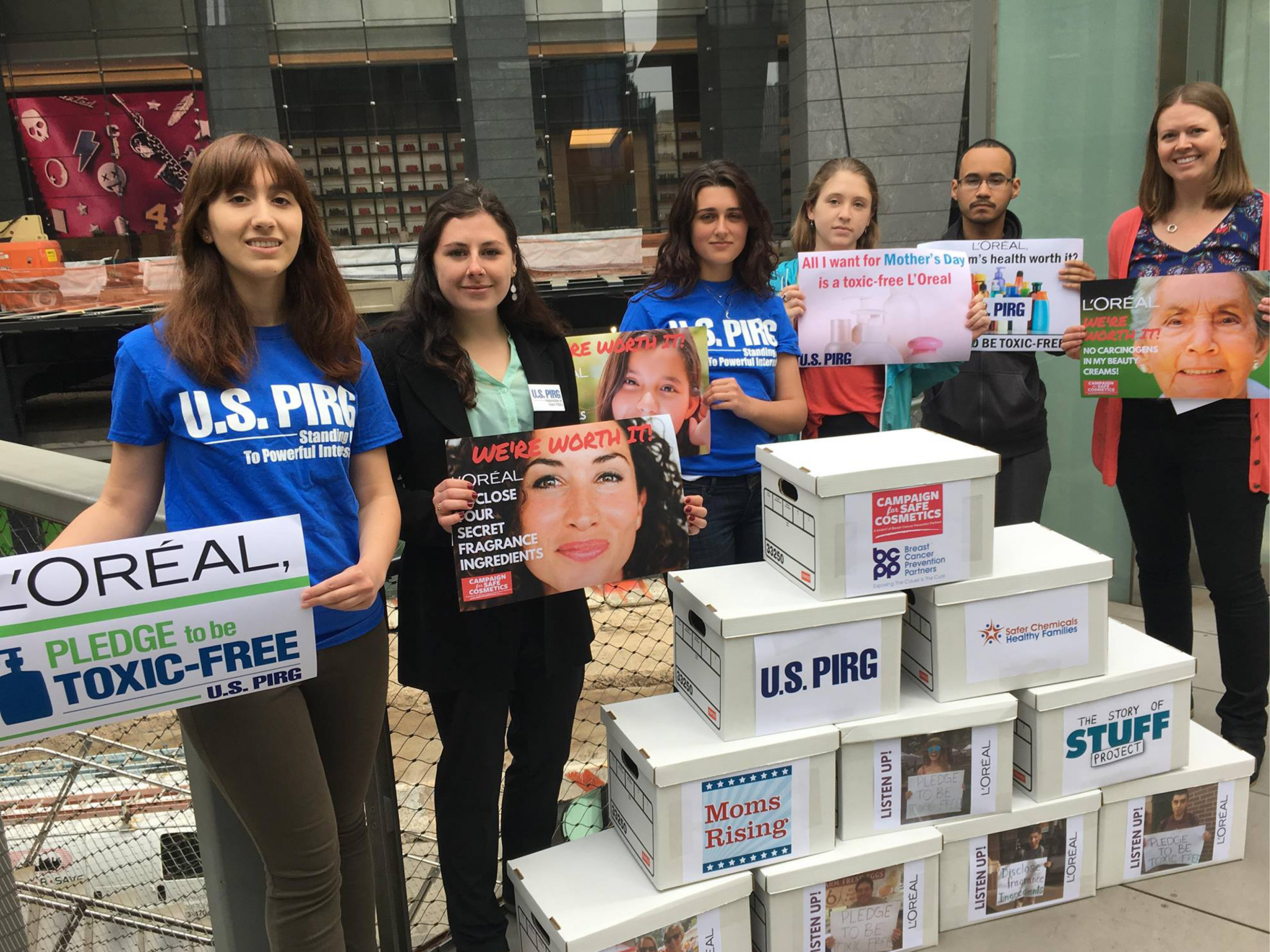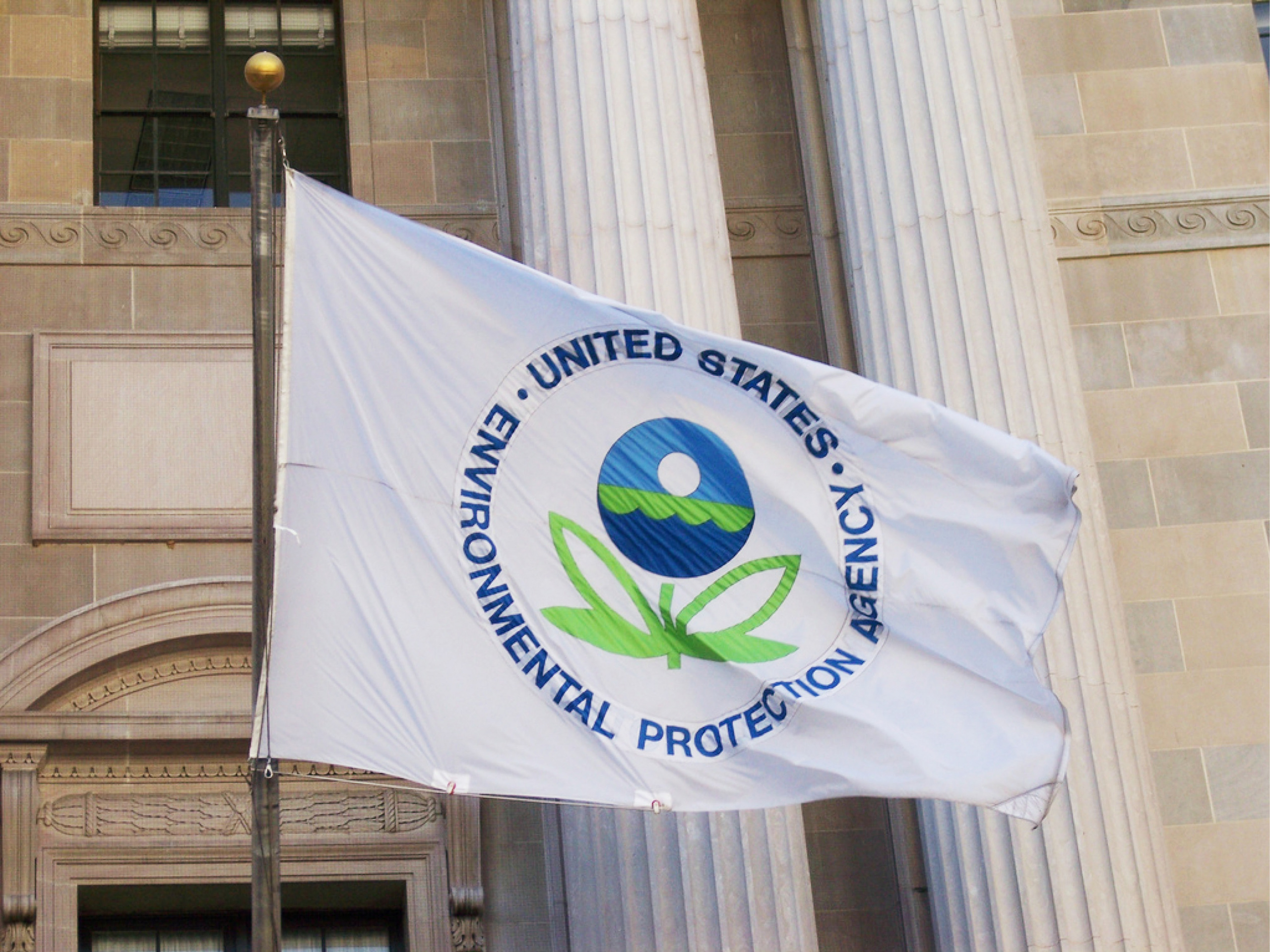Fall 2017 News Briefs
Pledge To Be Toxic-Free
Finding Out What Is In Our Personal Care Products

Over the past year, your support has helped us make great strides in our efforts to get the makers of personal care product to either disclose or remove toxic ingredients from their products.
After U.S. PIRG helped push Procter & Gamble and Unilever to take steps to improve ingredient transparency, SC Johnson—maker of products like Glade—responded to our call for change. The company agreed to remove galaxolide, a toxic chemical associated with developmental problems, from its products.
Then for Mother’s Day, U.S. PIRG joined coalition partners to deliver more than 150,000 petitions to L’Oréal, calling on the company to remove chemicals of concern and disclose fragrance ingredients, which can include dangerous chemicals like phthalates and styrene.
Consumer Protection
Protecting Digital Privacy

Nearly everything we do in today’s digital world leaves behind a trail of information—like your name, address, social security number and even your precise physical movements throughout the day. This information is captured, mined and sometimes exploited, often without your knowledge.
Fortunately, in May the Illinois House of Representatives passed the Geolocation Privacy Protection Act, commonsense legislation to require companies that track your movements through apps or websites to explicitly ask for your permission first—not bury it in long terms of service.
Illinois PIRG also backed the Right to Know Act, which simply gives consumers the right to know what information a website or app is collecting about them, and who they are sharing it with. With your support, Illinois PIRG will continue working to protect consumers’ privacy online.
Toxics
EPA Head Ignores Science On Dangerous Insecticide

Crucial decisions that will affect our children’s health should rely on scientific evidence. But Environmental Protection Agency (EPA) Administrator Scott Pruitt’s decision not to ban chlorpyrifos, an insecticide sprayed on the food we eat, ignored the EPA’s own scientists, who warned last year that chlorpyrifos is linked to brain and developmental damage in children.
For years, science has shown that chlorpyrifos is dangerous. In fact, the EPA banned the indoor use of the insecticide more than a decade ago. But it’s still used on food crops, and the EPA estimates that 90 percent of American women have unsafe levels of chlorpyrifos in their bloodstream. Alongside our members, U.S. PIRG is calling on the EPA to revisit its decision in states across the nation to ban chlorpyrifos.
Healthy Farms, Healthy Families
Reducing Farms’ Reliance On Chemicals & Fertilizers

Today, Americans are interested in whether their food is sustainable, and whether the farming practices that produce it help or hurt our health and the environment. Yet we spend billions of tax dollars every year on subsidies that incentivize practices that require more and more chemicals, putting our food, drinking water and health at risk.
But many farmers and researchers agree we can grow as much food as we do now without relying so heavily on chemicals. Shouldn’t we invest in farming practices that grow the food we need and also protect our health and environment?
U.S. PIRG is building a coalition of concerned citizens, farmers and health professionals. Together, we can convince our decision makers in Washington, D.C., that we need better farm policies—ones that support healthy farms and healthy families.
